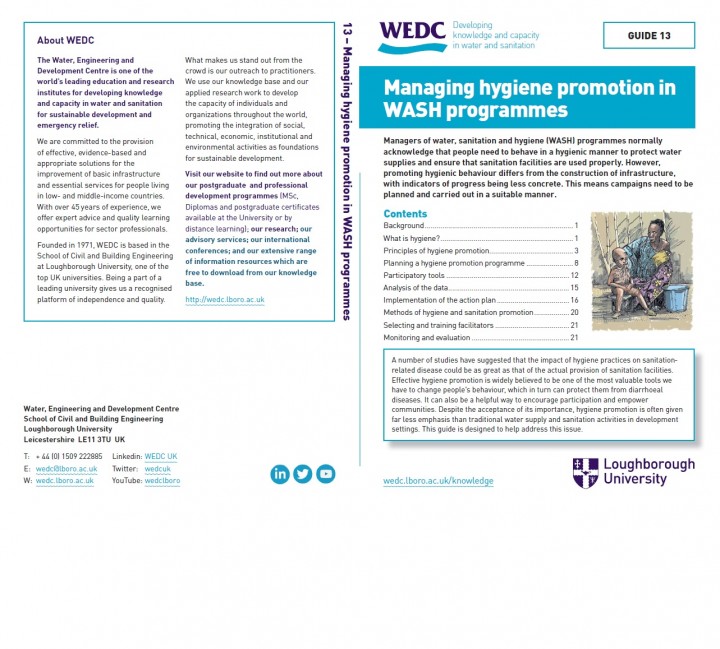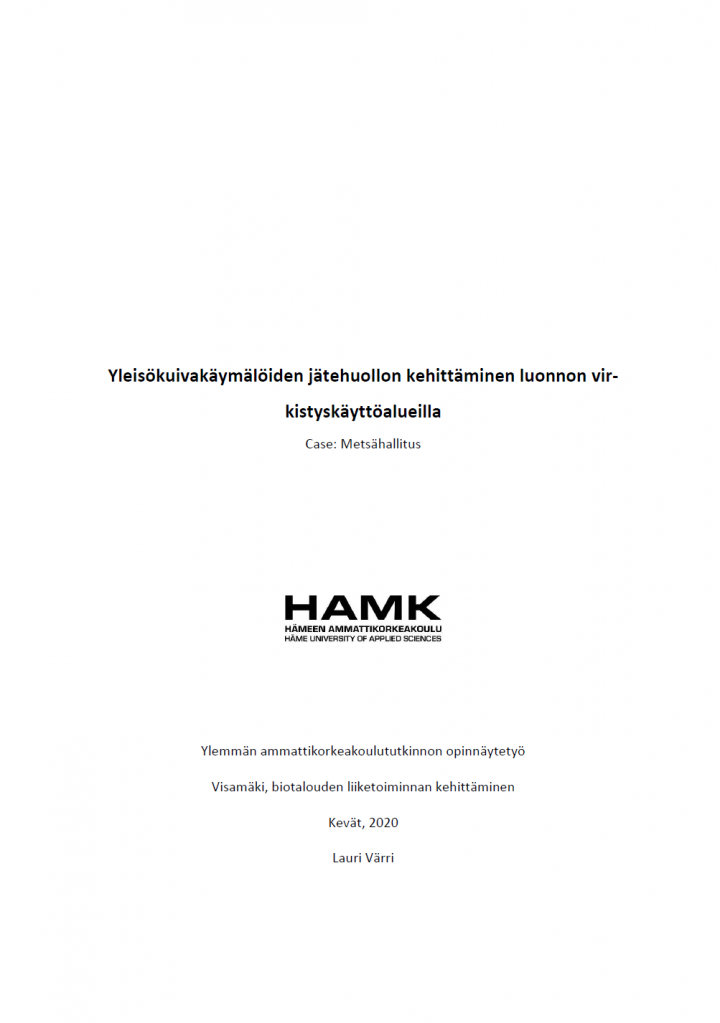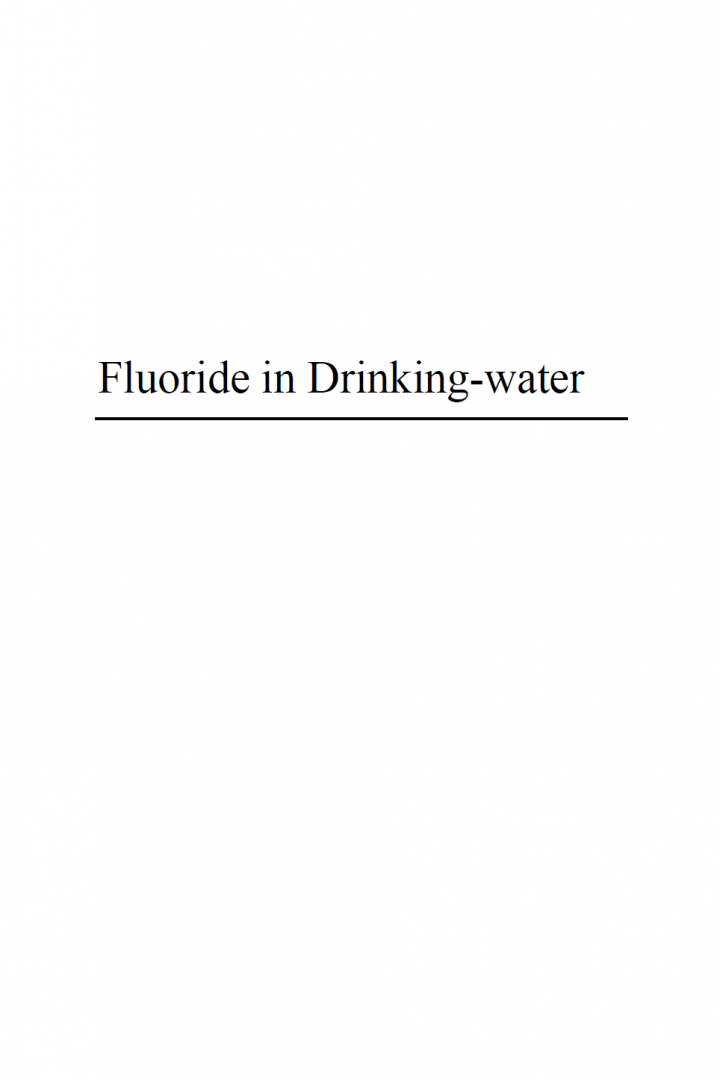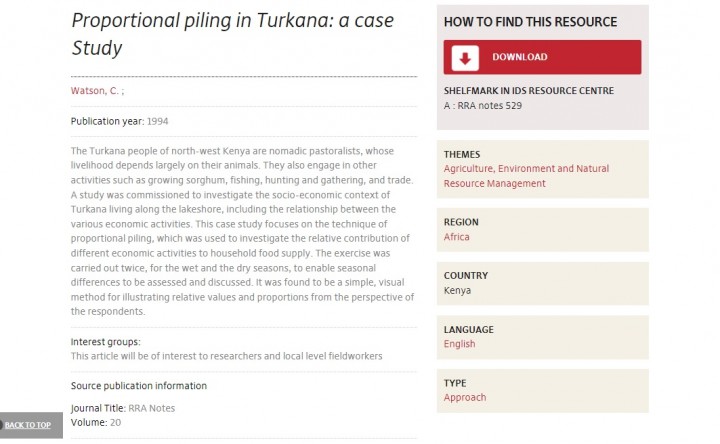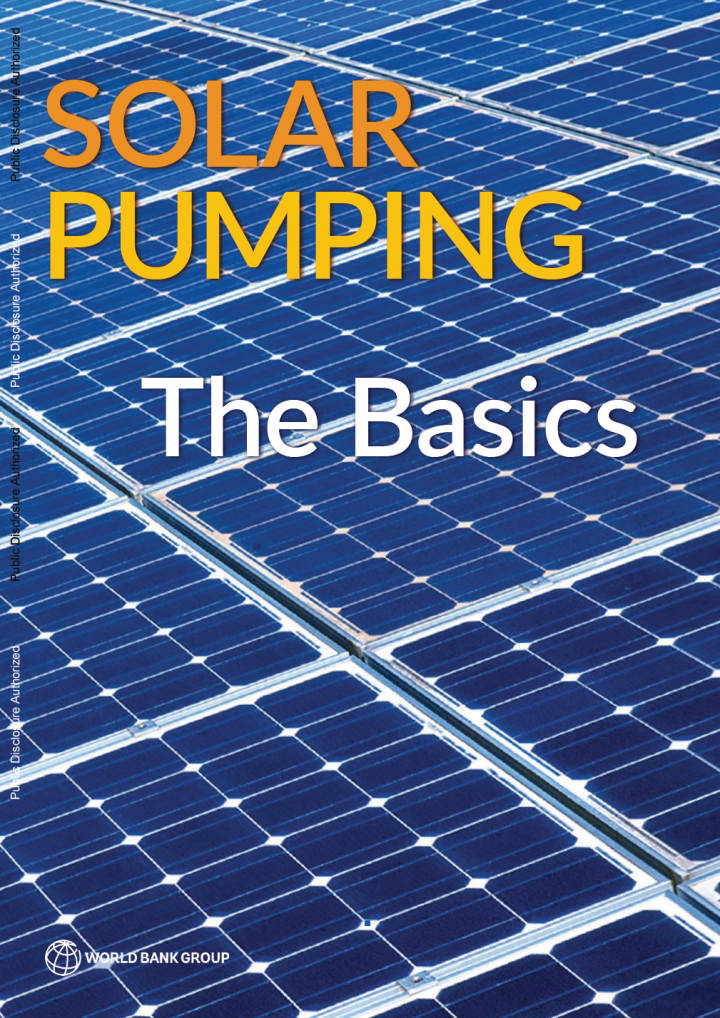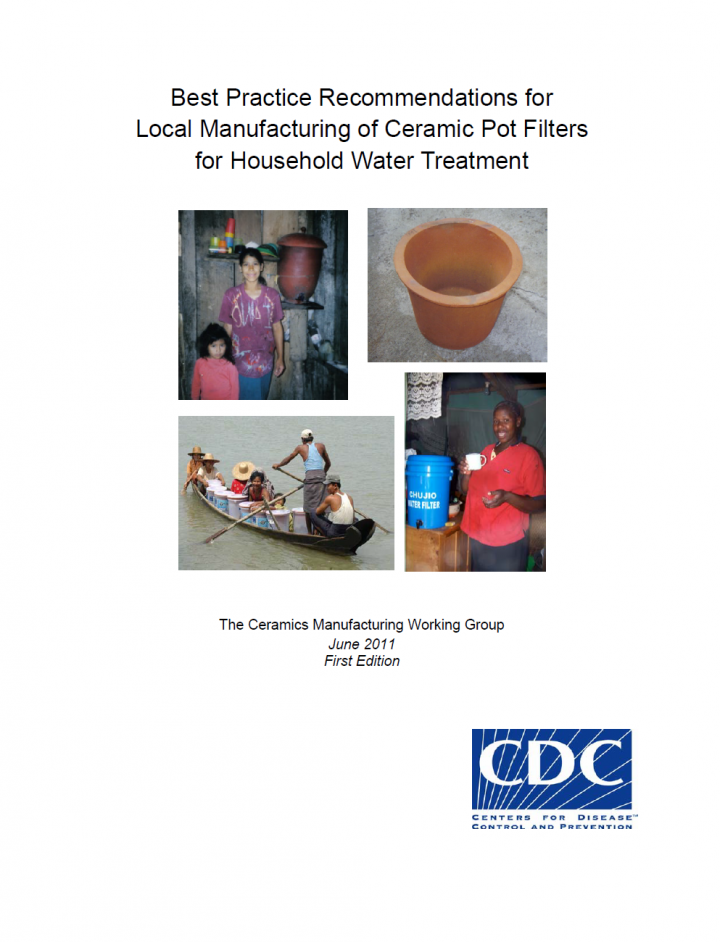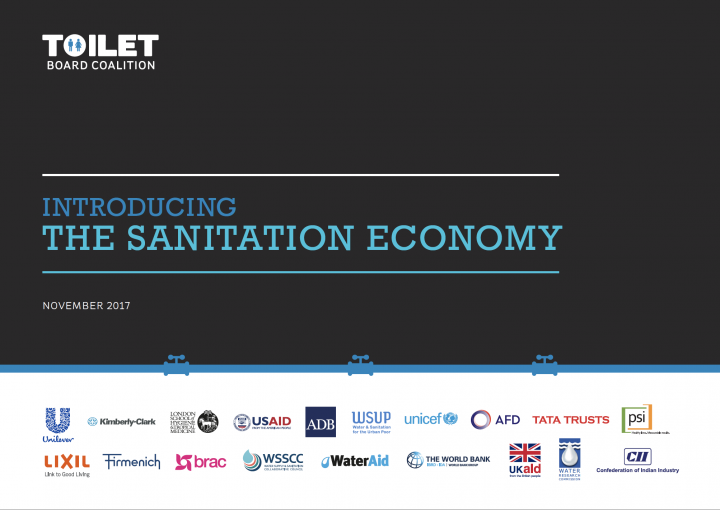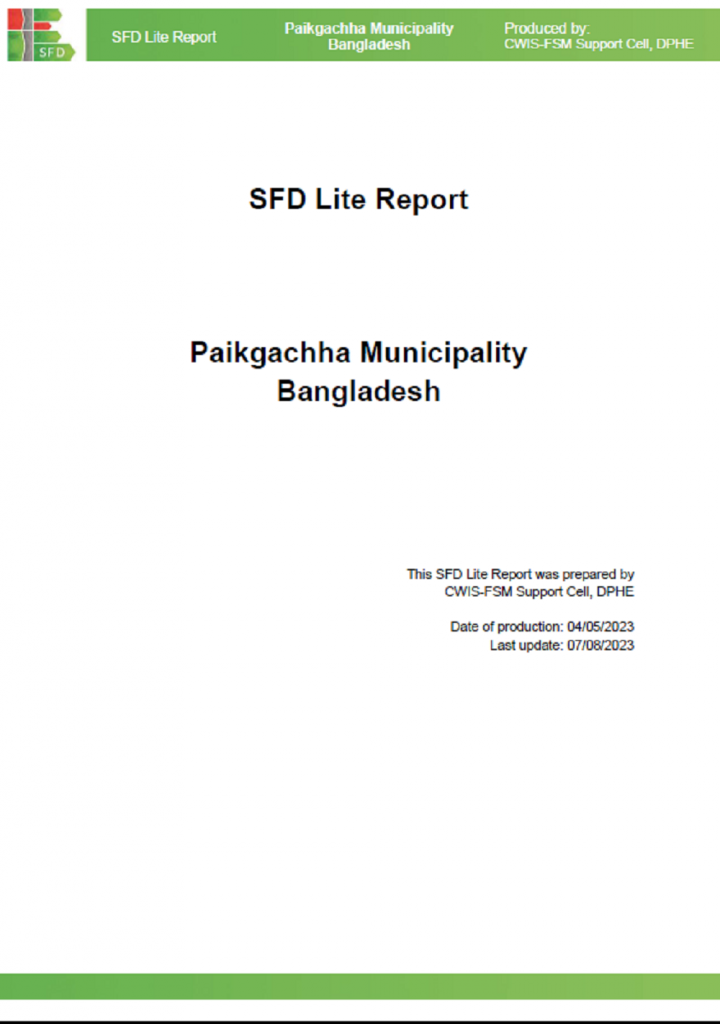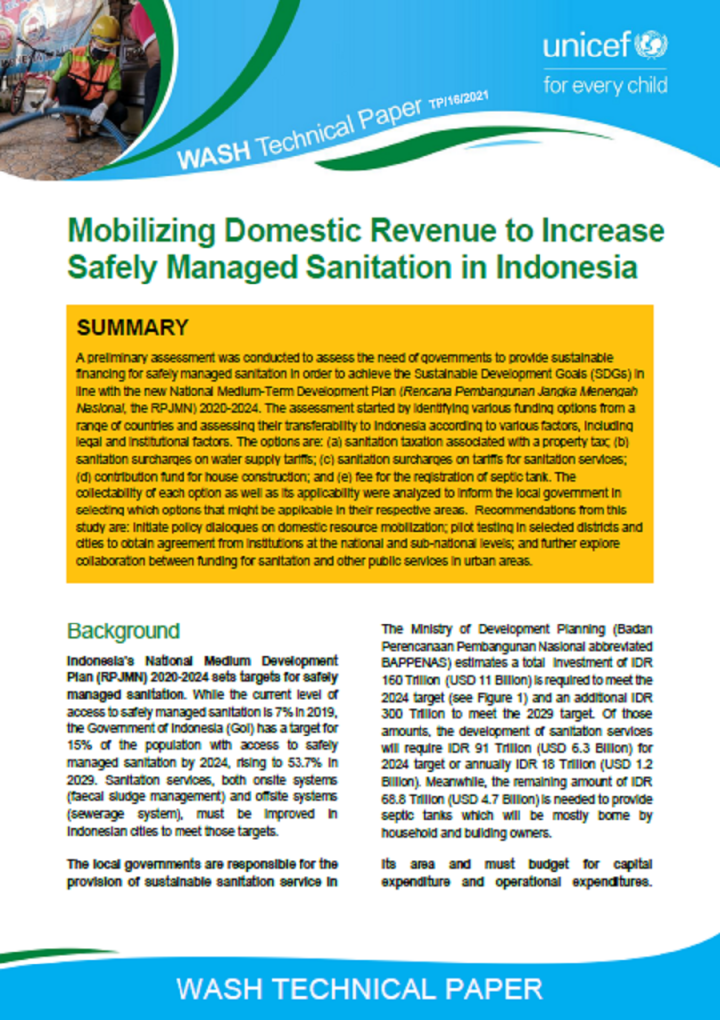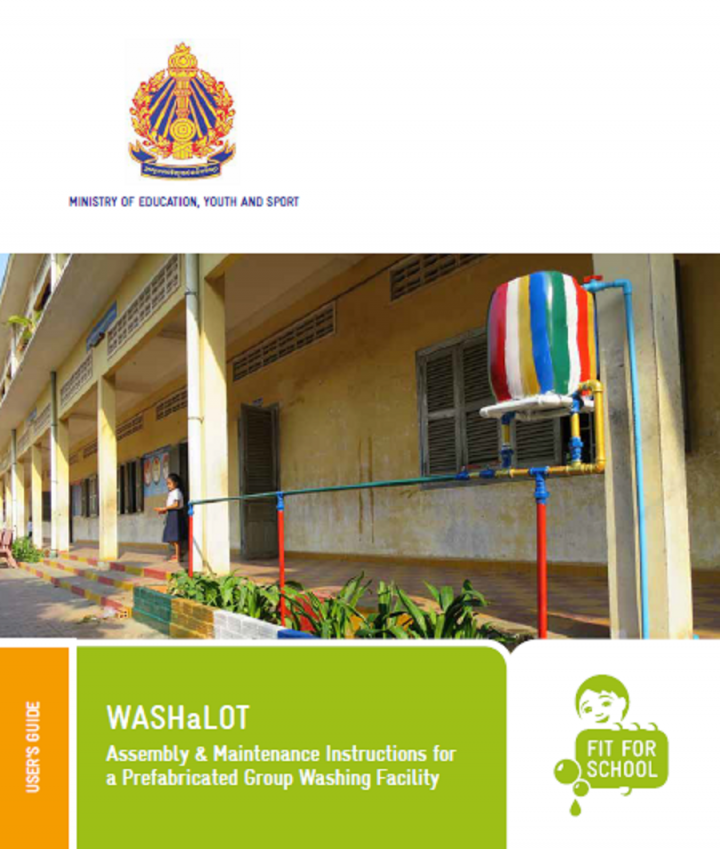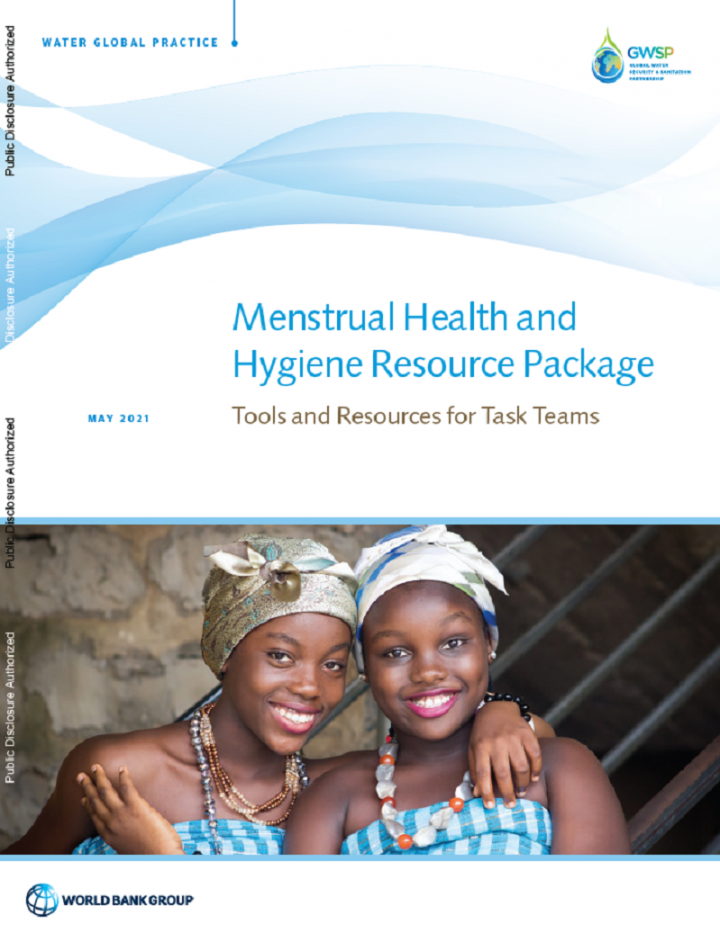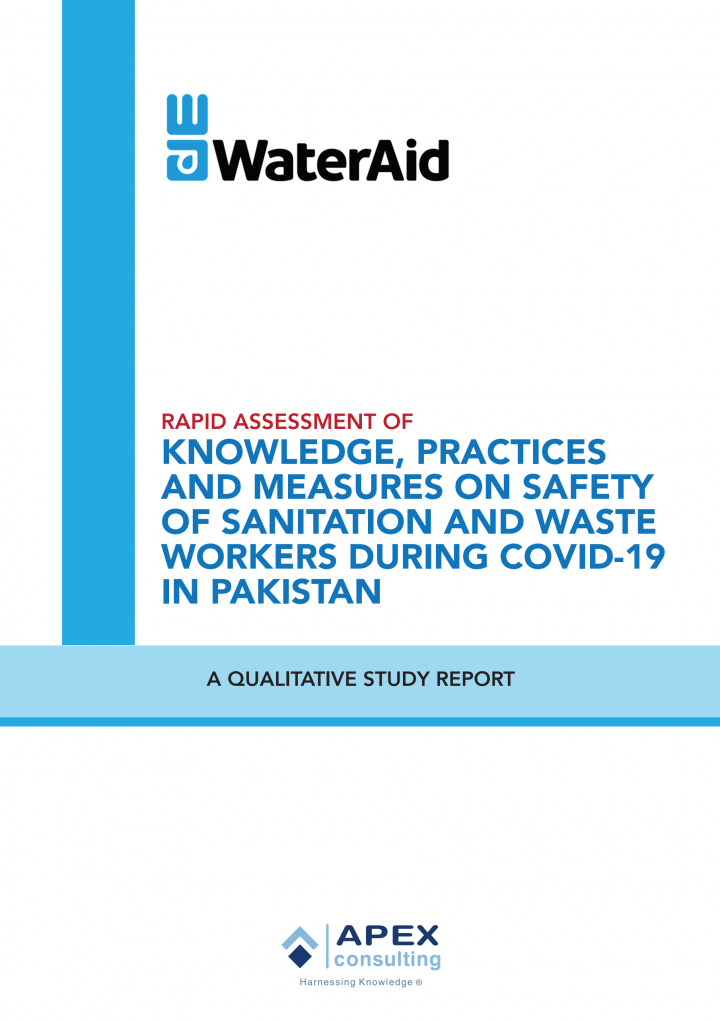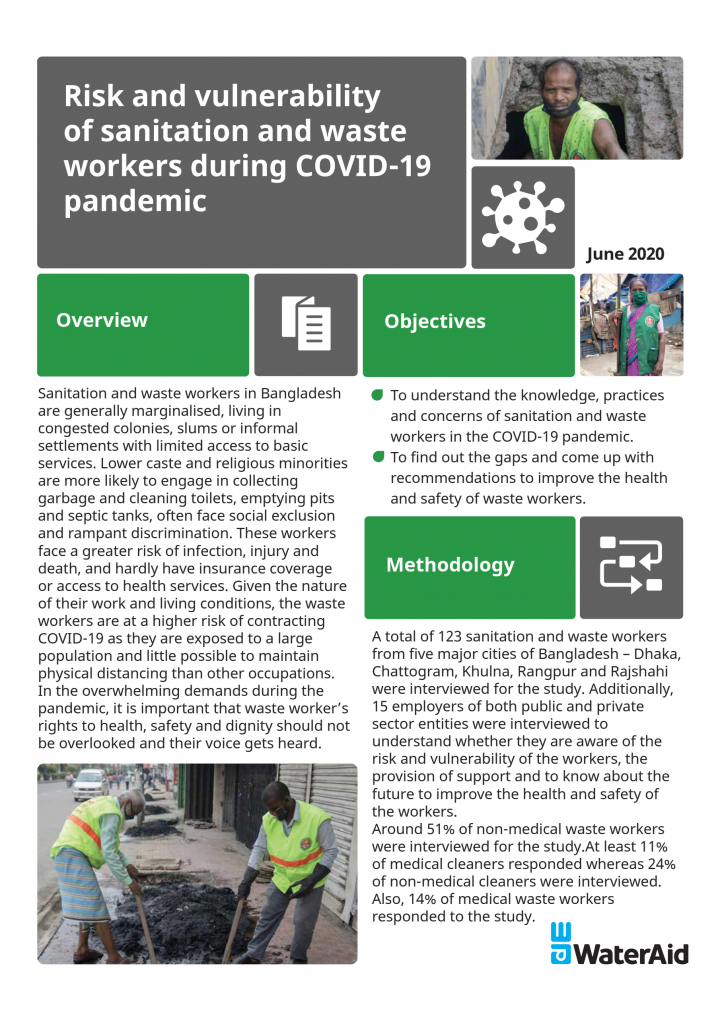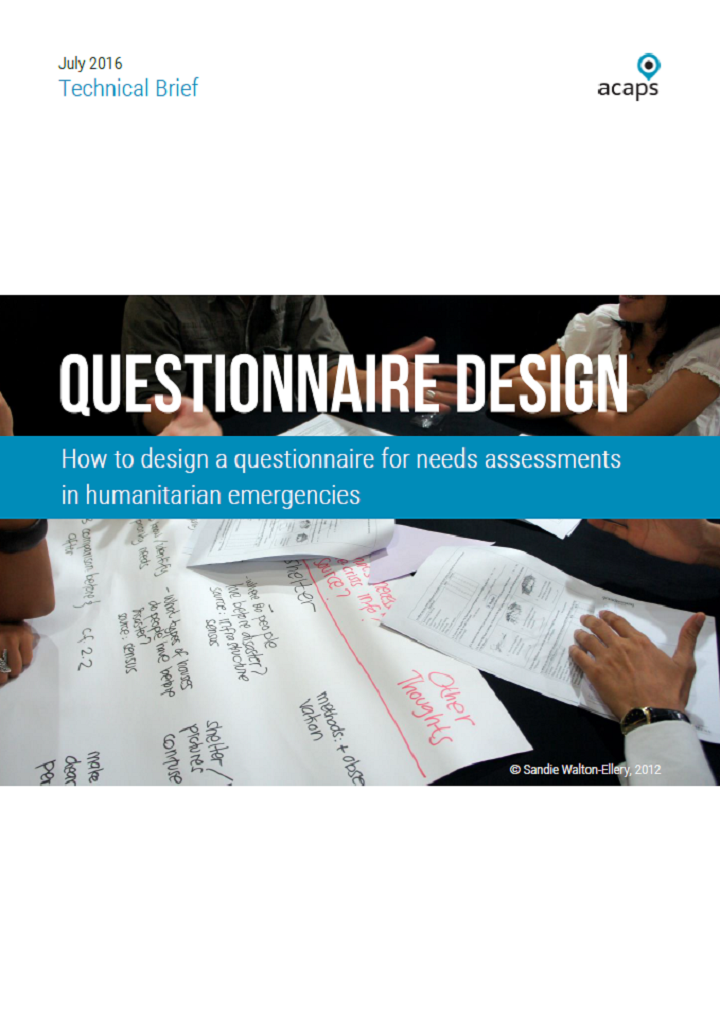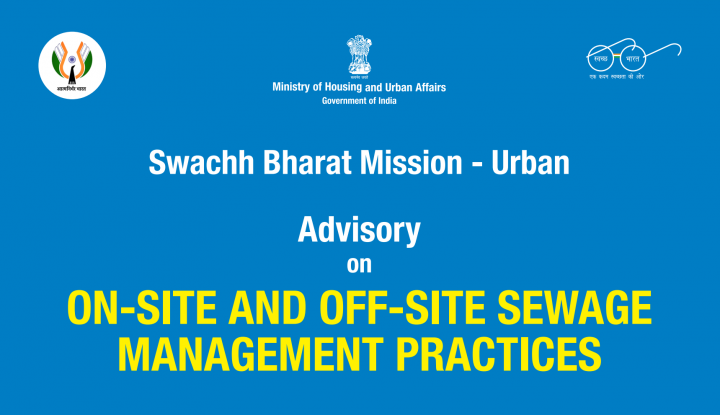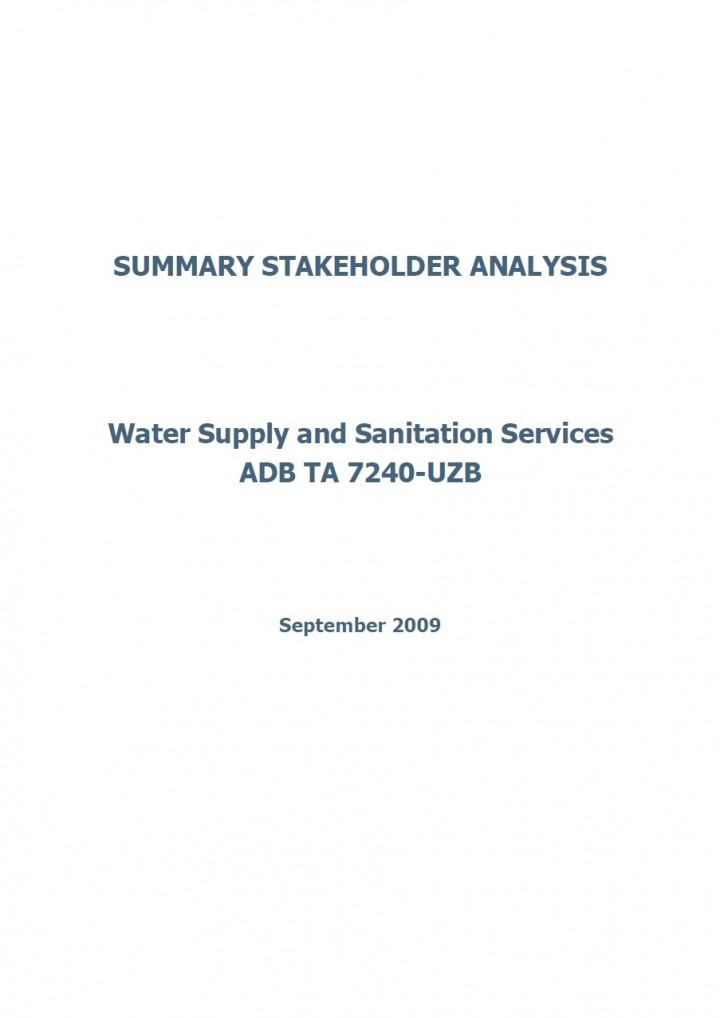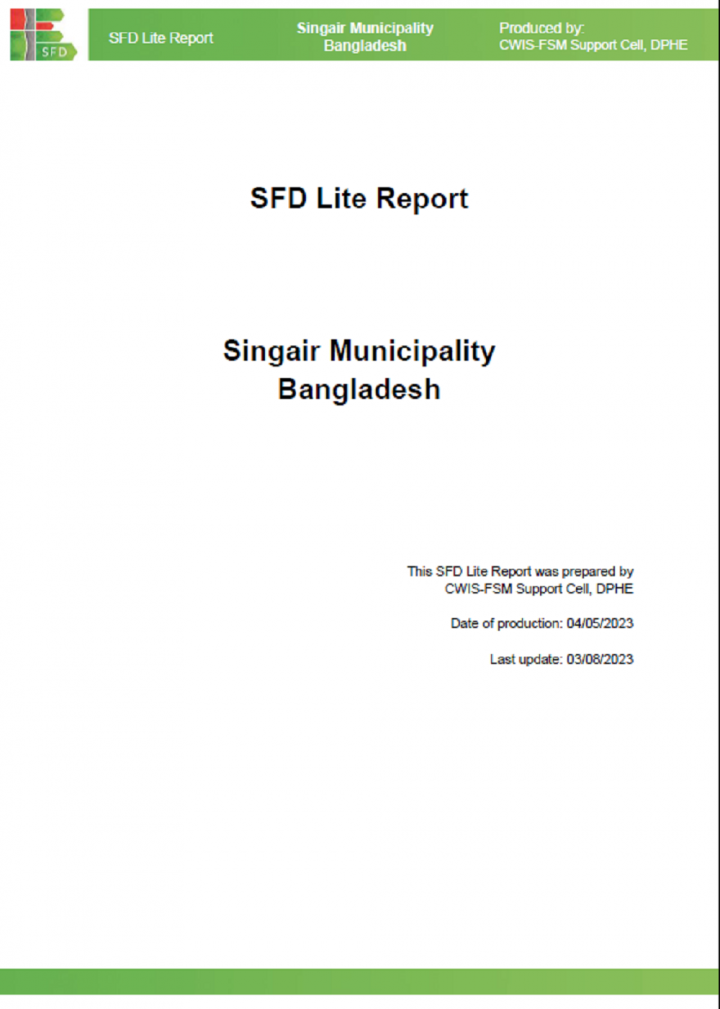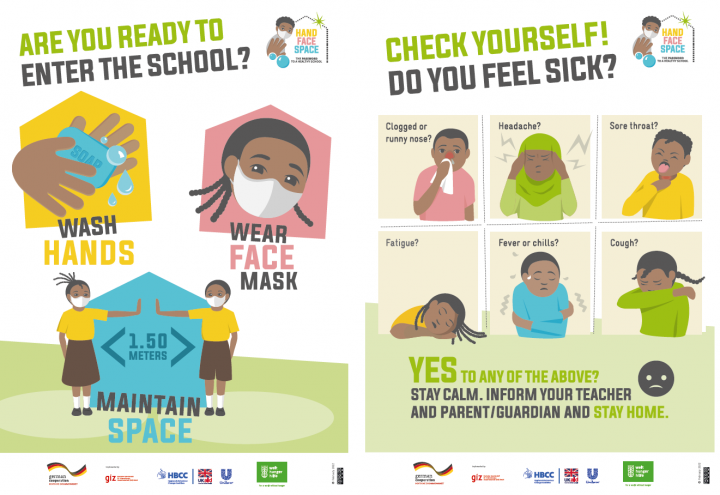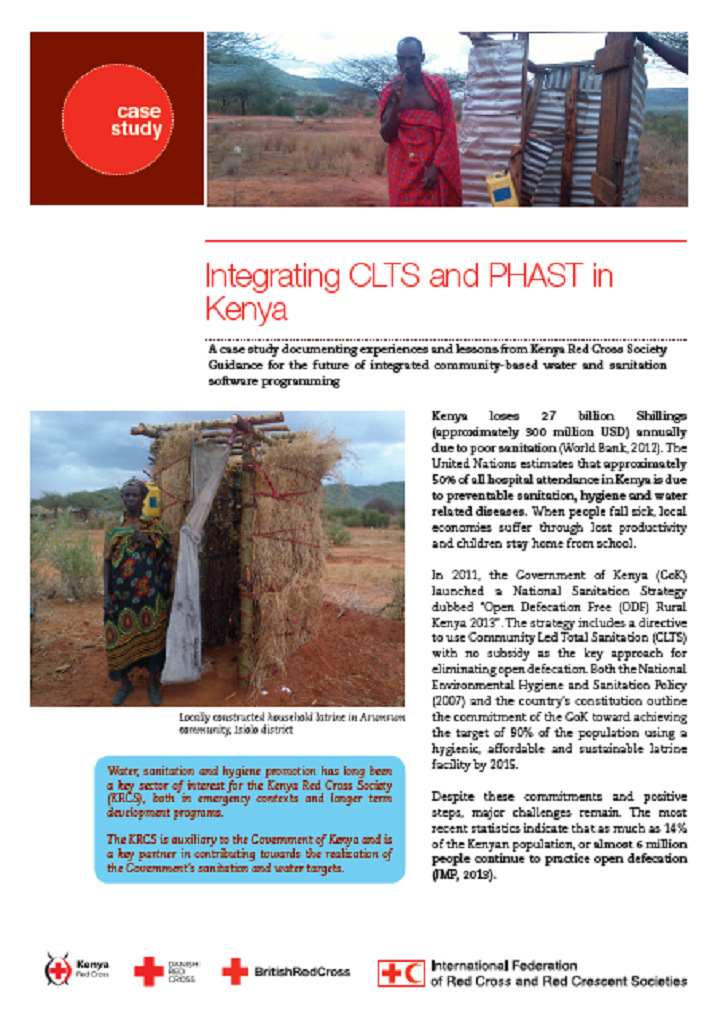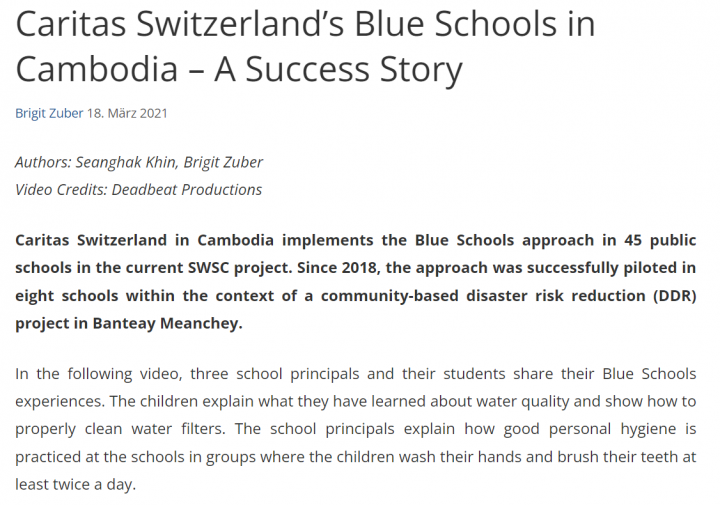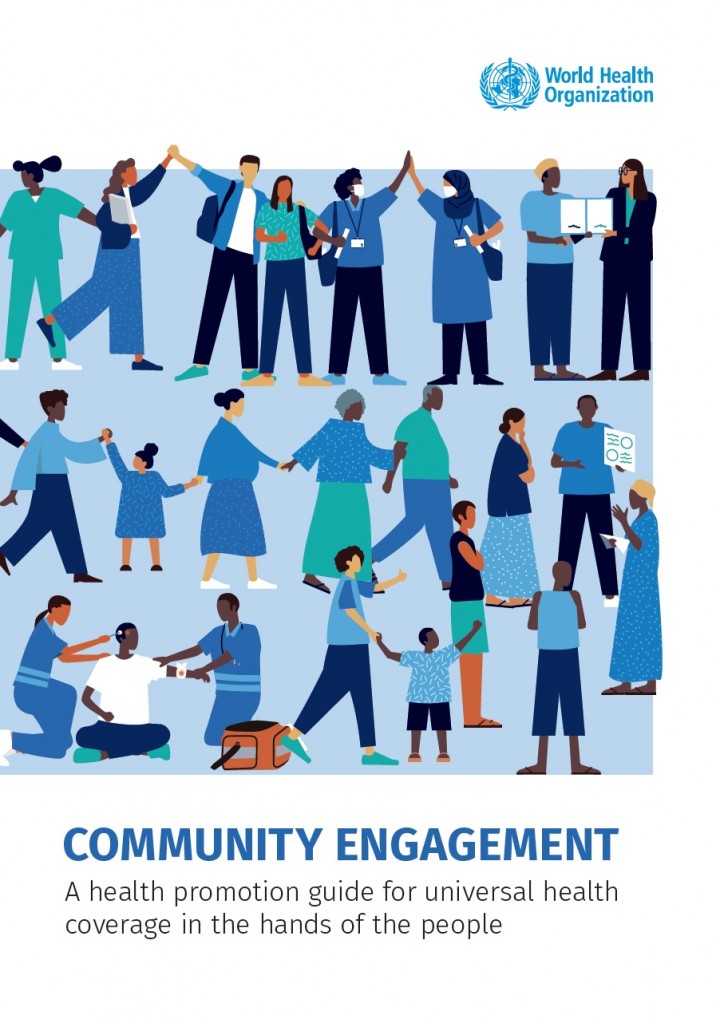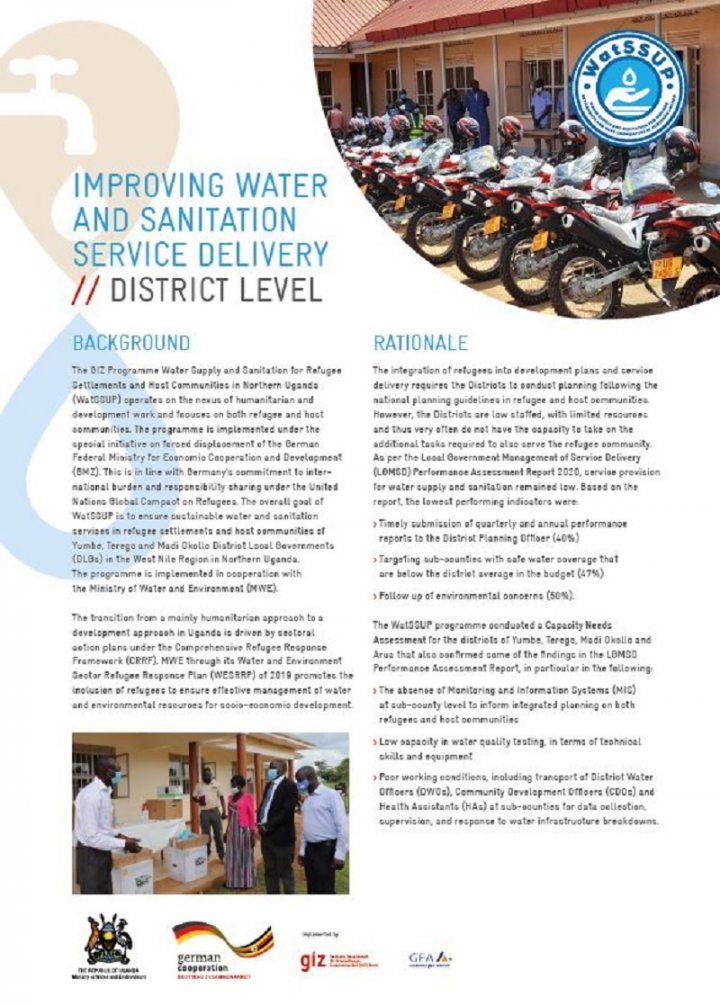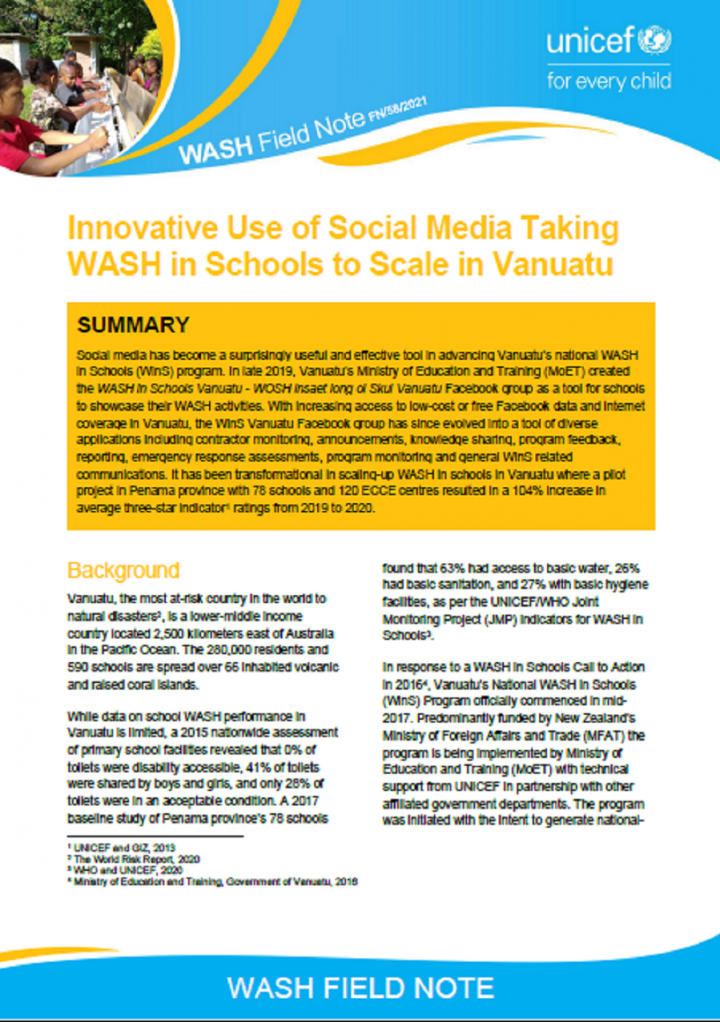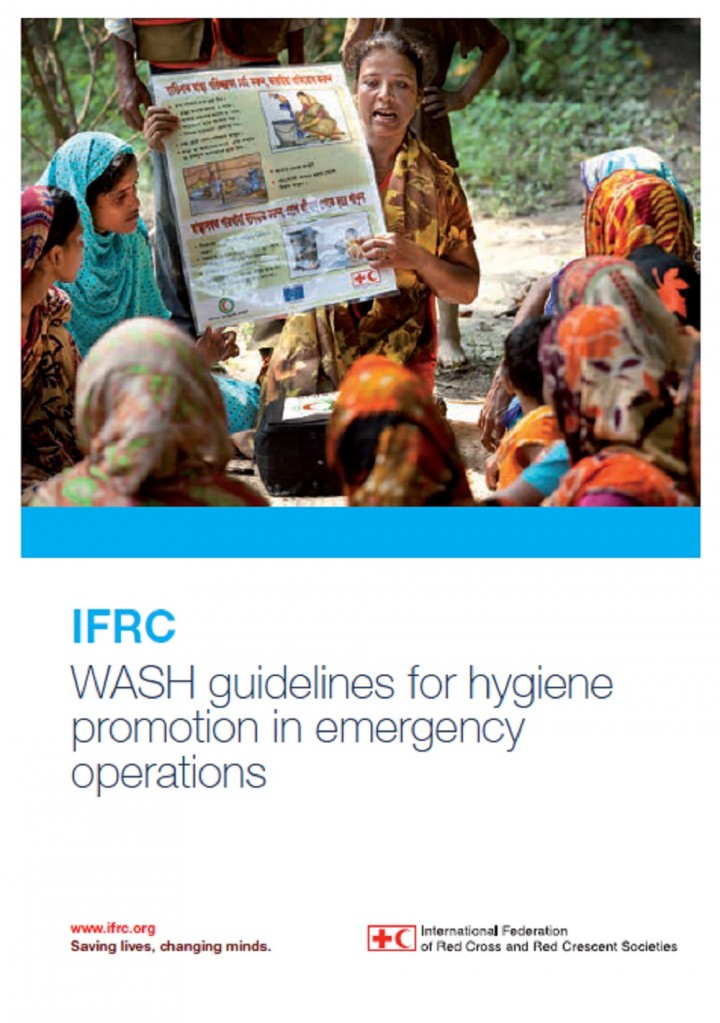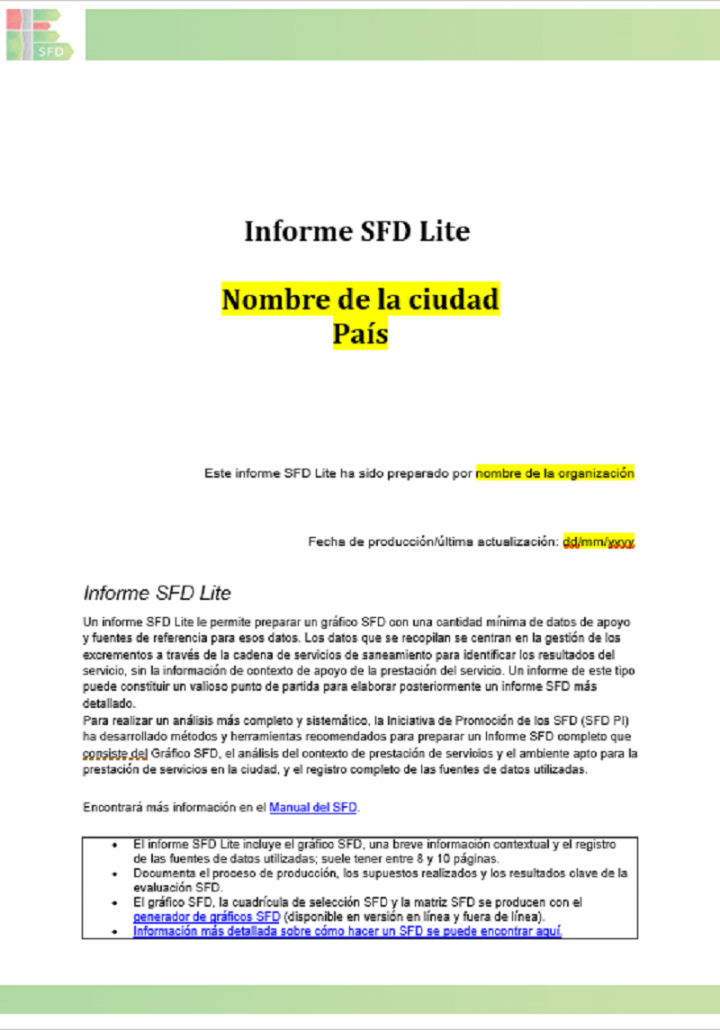Searching for information on Sanitation Workers?
The Sanitation Workers Knowledge + Learning Hub is the best source for all current news, trends, articles and updates on sanitation workers rights around the world.
Managers of water, sanitation and hygiene (WASH) programmes normally acknowledge that people need to behave in a hygienic manner to protect water supplies and ensure that sanitation facilities are used properly. However, promoting hygienic behaviour differs from the construction of infrastructure, with indicators of progress being less concrete. This means campaigns need to be planned and carried …
Dry toilets are one of the basic services provided for visitors in recreational wilderness areas. Operational environment for toilet waste management in these areas is challenging. At the same time the growing number of visitors in recreational areas is increasing the stress and loading on service infrastructure etc. toilets. The objective of this study was to recognize the major challenges in …
The Turkana people of north-west Kenya are nomadic pastoralists, whose livelihood depends largely on their animals. They also engage in other activities such as growing sorghum, fishing, hunting and gathering, and trade. A study was commissioned to investigate the socio-economic context of Turkana living along the lakeshore, including the relationship between the various economic activities. This …
Solar photovoltaic water pumping (SWP) uses energy from solar photovoltaic (PV) panels to power an electric water pump. The entire process, from sunlight to stored energy, is elegant and simple. Over last seven years, the technology and price of solar pumping have evolved dramatically and hence the opportunities it presents. Solar pumping is most competitive in regions with high solar insolation, …
Ceramic filters have traditionally been used to treat household water in many countries, and are commonly available for purchase in both developed and developing countries. Currently, the most widely promoted household ceramic filters in the developing world are based on a design developed in Guatemala in 1981 by Dr. Fernando Mazariegos who, working with the Instituto Centro Americano de …
The Sanitation Economy presents vast potential for global economic growth while addressing one of the most urgent grand challenges of our time, achieving universal access to improved sanitation (SDG6). It monetises toilet provision, products and services, biological resources, data and information to provide benefits across business and society.
Paikgachha Municipality is situated within the Paikgachha Upazila of the Khulna District in the Division of Khulna. The geographical coordinates of Paikgachha are 22°35'20.04"N and 89°20'9.96"E . Paikgachha Municipality is situated in the Khulna District. Its northern and southern boundaries are Tala and Dumuria Upazilas, its southern and eastern boundaries are Batiaghata and Dacope Upazilas, …
A preliminary assessment was conducted to assess the need of governments to provide sustainable financing for safely managed sanitation in order to achieve the Sustainable Development Goals (SDGs) in line with the new National Medium-Term Development Plan (Rencana Pembangunan Jangka Menengah Nasional, the RPJMN) 2020-2024. The assessment started by identifying various funding options from a range …
The purpose of this resource package is to assist World Bank task teams in ensuring that their projects are inclusive and responsive to the needs of women and girls. The tools included in this package are practical and user-friendly and guide task teams on how to design and monitor effective, inclusive, and sustainable menstrual health and hygiene (MHH) initiatives as part of their water supply, …
The rapid assessment attempts to collect information on the knowledge and awareness about transmission, symptoms, prevention and treatment of coronavirus, hand hygiene practices and concerns of sanitation workers and solid waste collectors about Covid-19 pandemic, the kind of safety measures put in place to protect these workers and the gaps that exist in terms of safety measures. Using …
Sanitation and waste workers in Bangladesh are generally marginalised, living in congested colonies, slums or informal settlements with limited access to basic services. Lower caste and religious minorities are more likely to engage in collecting garbage and cleaning toilets, emptying pits and septic tanks, often face social exclusion and rampant discrimination. These workers face a greater risk …
There is no shortage of questionnaires used during emergencies that are too long, overly complex or unable to generate useful responses. The art of developing an effective questionnaire is the topic of master degrees and doctorates. The questionnaire is a critical tool in humanitarian response and requires time, resources and a detailed understanding of the context, factors which are all in short …
The fast pace of urbanization – primarily due to the quest for good quality education, healthcare facilities, job opportunities, rapid changes in lifestyle and growing aspirations in urban areas– coupled with spurt in economic activities has compounded the sanitation challenges in urban areas, as creation of sanitation infrastructure could not keep pace with urbanization. India is signatory …
An analysis of the stakeholders of the proposed WSSS Improvement Investment Program has identified the individuals, groups and organizations that will be influenced by and affected by the water supply and sanitation services sub-projects.These stakeholders include: government ministries and agencies, provincial organizations, town residents at household-level, the private sector. The analysis …
Singair Municipality is situated within the Singair Sub-District (Upazila) in Manikganj District (Zila), which is under Dhaka Division. The geographical coordinates of Singair are between latitudes 23°44' N and 23°52' N and longitudes 90°04' E and 90°16' E. The municipality is bounded on the north by Talebpur union, on the south by Charigram and Sayasta union, on the east by Joymontop union, …
WHO has defined community engagement as “a process of developing relationships that enable stakeholders to work together to address health-related issues and promote well-being to achieve positive health impact and outcomes”. There are undeniable benefits to engaging communities in promoting health and wellbeing. At its core, community engagement enables changes in behaviour, environments, …
The GIZ Programme Water Supply and Sanitation for Refugee Settlements and Host Communities in Northern Uganda (WatSSUP) operates on the nexus of humanitarian and development work and focuses on both refugee and host communities. The programme is implemented under the special initiative on forced displacement of the German Federal Ministry for Economic Cooperation and Development (BMZ). This is in …
Social media has become a surprisingly useful and effective tool in advancing Vanuatu’s national WASH in Schools (WinS) program. In late 2019, Vanuatu’s Ministry of Education and Training (MoET) created the WASH in Schools Vanuatu - WOSH insaet long ol Skul Vanuatu Facebook group as a tool for schools to showcase their WASH activities. With increasing access to low-cost or free Facebook data …
These guidelines outline a step-by-step process for Red Cross Red Crescent staff and volunteers to plan and implement effective, context appropriate hygiene promotion, without taking shortcuts or delivering ‘hygiene messages’. The guidelines provide National Societies with a standard approach for quality assurance, and an opportunity for more effective training and monitoring.

